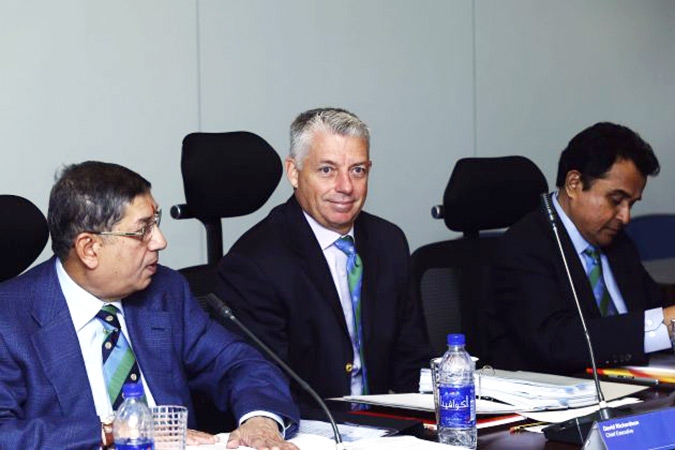Pakistan Cricket Board’s efforts, under its former chairman Najam Sethi, finally bore fruit as the International Cricket Council (ICC) approved its revised anti-corruption code on Monday.
The revised code left it up to home boards to allow banned players to return early to domestic competition.
For a player to return to domestic competition before the expiry of his ban would need the agreement of the chairman of the Anti-Corruption Board, Sir Ronnie Flanagan, and the relevant National Cricket Federation, with the approval of the ICC Board, an ICC release explained.
The revised code will specifically help Pakistan seamer Mohammad Aamer's early return to domestic cricket, likely in February next year.
Last year, the PCB had demanded the ICC relax certain conditions of Aamer's ban after he pleaded guilty to a spot-fixing crime and then completed the rehabilitation process.
Aamer, now 22, was banned along with Salman Butt and Mohammad Asif in a spot-fixing scandal during Pakistan's tour of England in 2010.
Aamer was banned for five years, Butt for ten (with five suspended) and Asif for seven (two suspended).
The trio, also jailed in Britain, were charged with orchestrating deliberate no-balls during the Lord's Test against England in return for money.
The ICC said the revised code would close certain loopholes and address the issue of who has jurisdiction in a particular case.
The code would also allow a player charged with an offence but who has not been provisionally suspended, to agree to voluntarily suspend him/herself, the ICC said.
ICC Chairman Narayanaswami Srinivasan, himself suspended in India over a fixing scandal in a Twenty20 League, said: “The process for the revision of the ICC Anti-Corruption Code was exhaustive and has been based on our learning and experiences over the past few years.
"This code is now even more robust and comprehensive and it provides clarity on jurisdictional issues, gives options to the charged participant and offers more choices to the Anti-Corruption Tribunal."
ICC Chief Executive David Richardson admitted the fight against corruption was still a priority.
“The battle against corruption remains one of cricket’s biggest challenges and we remain committed to eliminating this menace from our sport," he said.
Aamer last week said that he was anxiously awaiting the revision of the code and would apply to the PCB to be allowed to play in domestic matches.
"I am waiting for the ICC decision and once it comes, I will apply with the PCB to resume my domestic career and then international matches," said Aamer.
The ICC Board also endorsed and reiterated its support for the ICC’s no-tolerance approach in dealing with suspected illegal bowling actions.
It also complimented the members for supporting the process, and proactively identifying and addressing bowlers with suspected illegal bowling actions at domestic level.
Pakistan's Saeed Ajmal was one of five bowlers suspended on illegal action following ICC crackdown since June this year.
The Board noted and supported the more proactive approach of the match officials in international cricket in enforcing better standards of player behaviour and improved over-rates.




